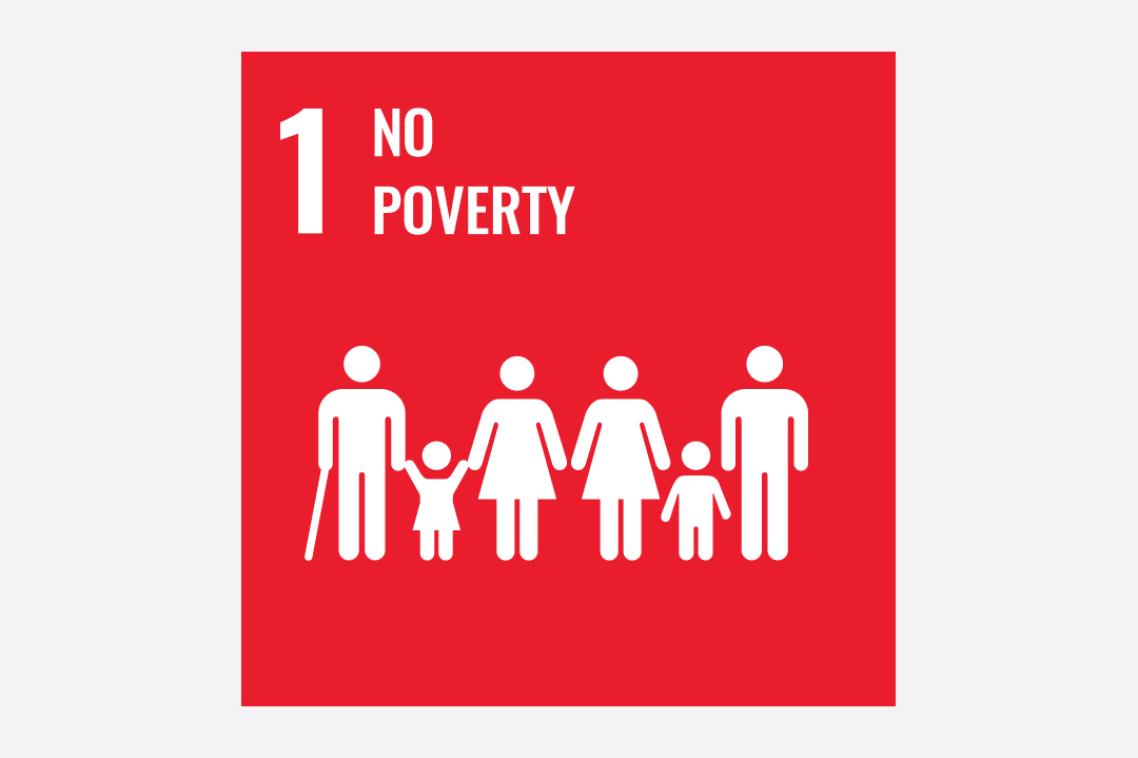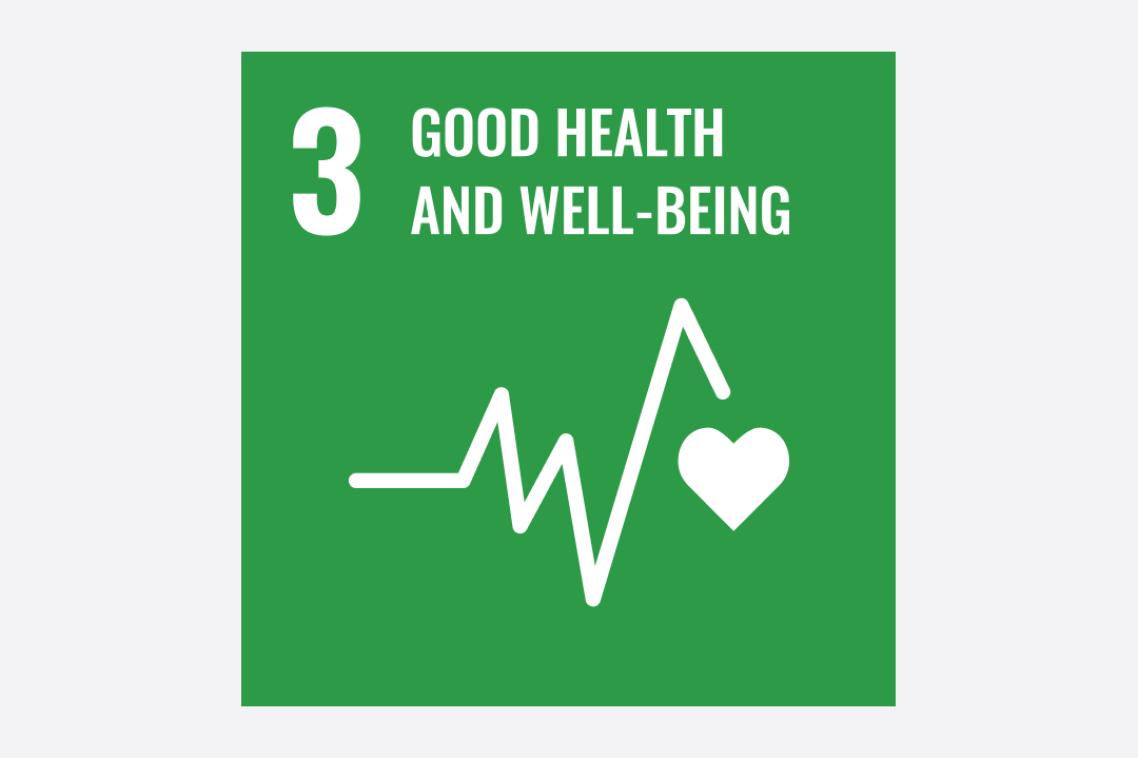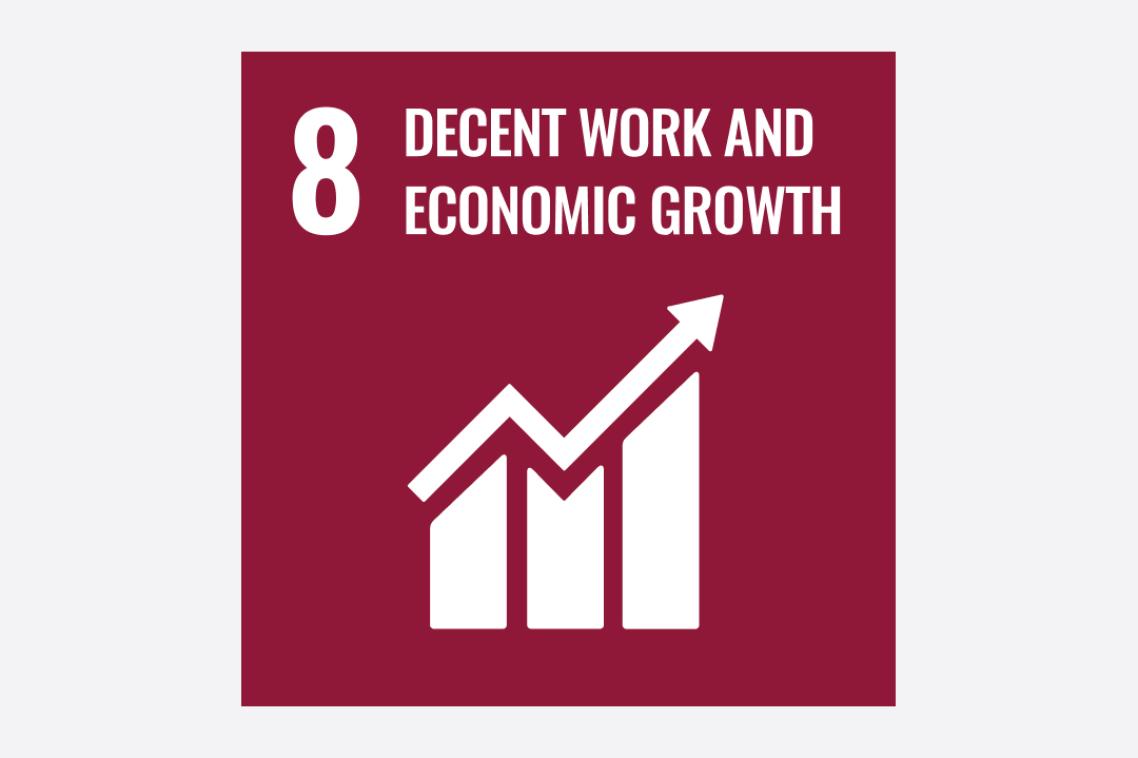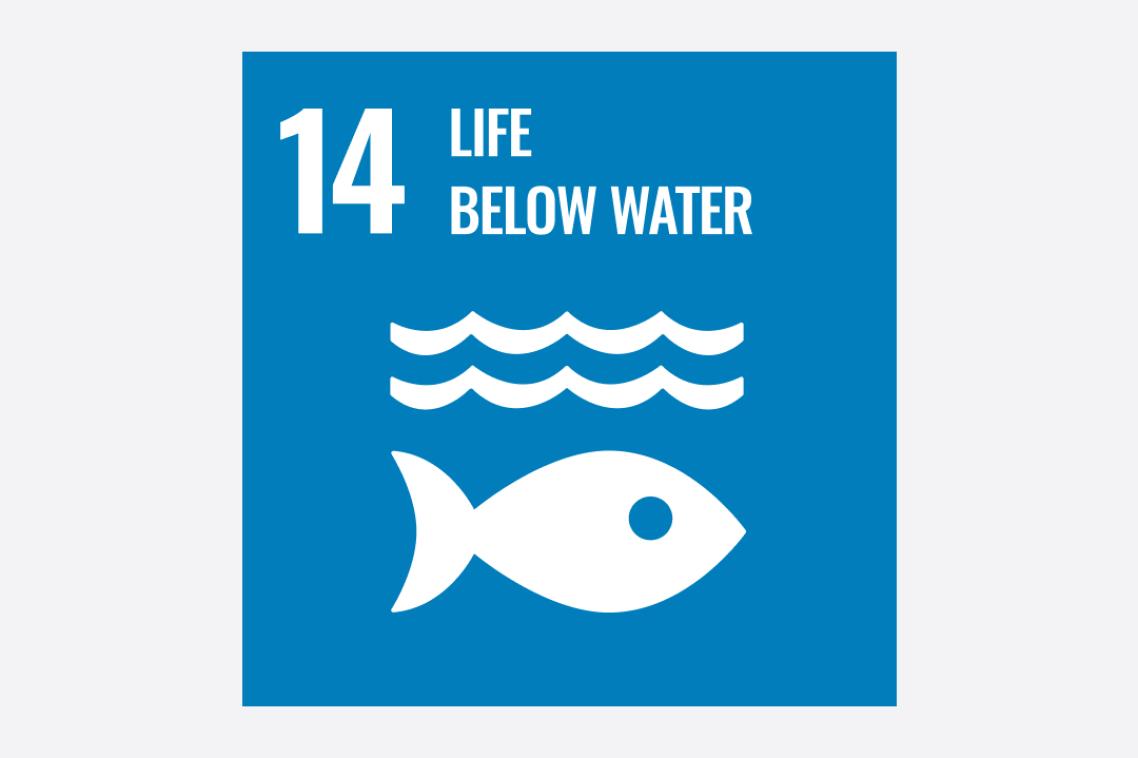SDG 10 – Reduced inequalities
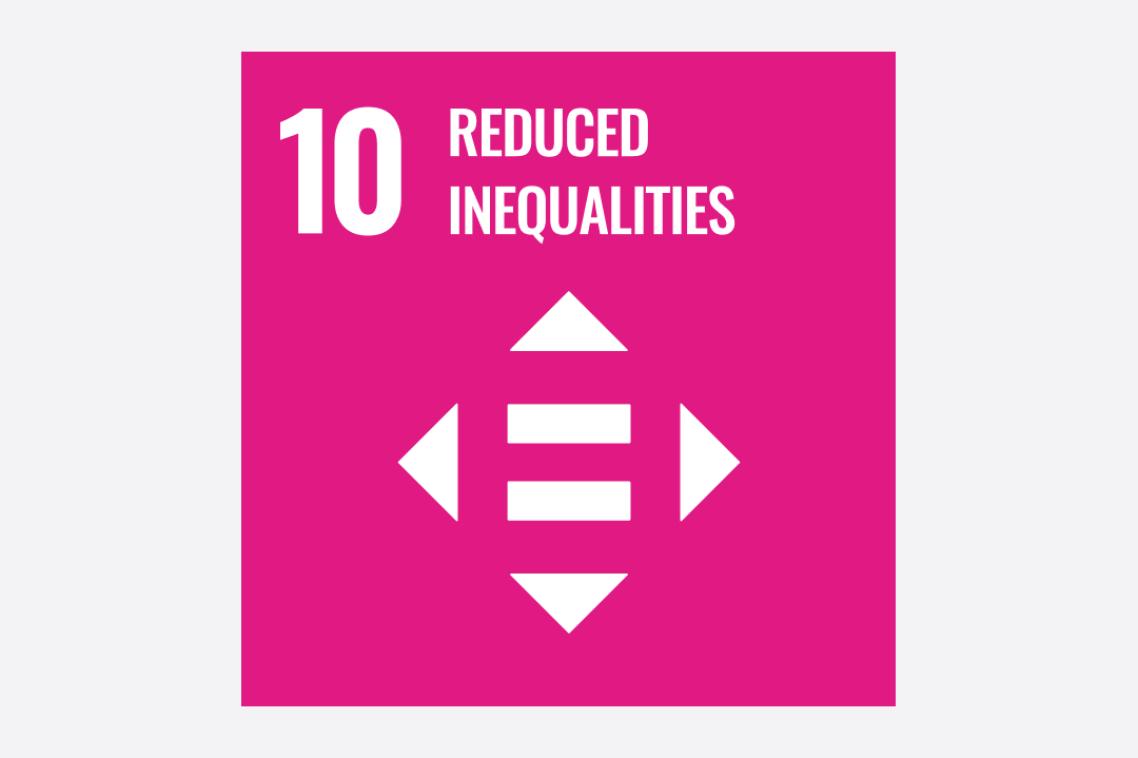
2024 progress
The University of Queensland (UQ) exists to deliver for the public good through excellence in education, research and engagement with our communities and partners – both locally and globally. UQ aims to reduce inequalities across its educational and research activities, operations and community engagement.
UQ is committed to being a university that breaks down barriers to education through the targeted and effective Queensland Commitment, which seeks to ensure equitable access to education for all across Queensland, including underrepresented groups, with an immediate focus on students from low socio-economic backgrounds, regional or remote areas, and those identifying as Aboriginal and Torres Strait Islander. We aim to ensure that all students who want to study at UQ are supported to pursue an education – regardless of financial circumstances and geographic location.
UQ values equity, diversity and inclusion, and seeks to attract and retain high-quality students and staff from a range of backgrounds. We are committed to identifying and addressing areas of under-representation among students and staff and aim to provide a respectful and healthy study, research and work environment for all. These initiatives are underpinned by the Stretch Reconciliation Action Plan (RAP) and Disability Inclusion Research and Innovation Plan (2024-2026) which articulate UQ’s aspiration to become a national and international leader in disability inclusion, and are underpinned by the United Nations Convention on the Rights of Persons with Disabilities.
UQ’s research agenda, supported by the Research Roadmap 2023-2032, aligns with SDG 10 by prioritising social equity, inclusive innovation and community-informed inquiry, supported by institutional frameworks that promote open access and collaborative partnerships.
Read our SDG 10 2024 report (PDF, 328.49 KB)
See how we make a difference across key areas:
Our people – Students and staff
We are committed to creating a respectful, inclusive and empowering environment for all staff, students and visitors, with a strong focus on equity, diversity and accessibility. Backed by dedicated leadership, inclusive policies and partnerships with community organisations, UQ is working to embed reconciliation, support underrepresented groups, and promote cultural safety across campus, while also leading national efforts in disability inclusion and educational equity.
Student recruitment, applications and admissions
Admission Policy
UQ has an Admission Policy which outlines the principles and requirements governing admission to UQ, and which applies to all applicants seeking admission to a UQ program or non-award study. The exceptions are
- Higher and Professional Doctorate applicants are covered by the Higher Doctorates and Professional Doctorates policies
- applicants undertaking shorter form credentials are covered by the Shorter Form Credentials Policy.
The Admission Policy is non-discriminatory in nature, stating that UQ will conduct its admissions processes based on the principles of:
- transparency and fairness
- equity of access and selection on merit.
This stipulates that while admission requirements are based on minimum academic achievements, demonstrated English Language Proficiency and any other university, program or course level requirements, UQ will establish admission schemes to support applicants with educationally disadvantaged backgrounds to gain admission. These will be established in accordance with the procedures, and in these schemes additional or alternative criteria may be considered when assessing an individual’s academic merit and potential for success. The logic of these schemes centres on equal opportunity rather than equal treatment, maintaining academic integrity while removing artificial barriers to attract students based on their true potential.
Tracking applications and admissions
UQ regularly tracks applications and admissions of students from a range of under-represented cohorts through the following mechanisms:
The Queensland Commitment Student Lifecycle Metrics Report
Introduced in 2024, the report enables data-driven actions to track and celebrate progress in admissions, enrolments, academic performance and completion rates for students from Indigenous, low socio-economic and regional or remote backgrounds.
Standard Business Intelligence reports
These reports are made available to decision makers across UQ, and regular reporting and analysis prepared for relevant committees (including the University Senior Executive Team and the Equity, Diversity and Inclusion Committee).
Equity and Diversity Performance Measures Scorecard
The scorecard includes both staff and student metrics. In relation to students, it provides a range of metrics on students who are:
- from a low socio-economic background
- first in their family to attend university
- from a regional/remote area
- Aboriginal and/or Torres Strait Islander
- from a non-English speaking background
- women enrolled in non-traditional disciplines (e.g. Engineering, Science, IT).
UQ does not collect data on students who identify as LGBTQIA+ but their experiences are monitored through student representative groups and formal equity and diversity committees.
Admission schemes
UQ also takes planned actions to recruit students from under-represented groups by dismantling barriers that would normally obstruct their access to university. UQ’s admission schemes recognise that for some cohorts of students, their schooling results or other measures of achievements may not truly reflect their academic potential due to educational disadvantage. The schemes provide admissions adjustments – including for under-represented groups such as regional and remote, and Aboriginal and Torres Strait Islander candidates – by modifying students’ Australian Tertiary Admission Rank (ATAR) scores or original selection rank. They include:
- School Opportunity Scheme – boosts a student’s selection rank by 2 or 4 adjustments based on a school’s Index of Community Socio-Educational Advantage (ICSEA) value
- Rural Access Scheme – recognises that rural and remote areas often have less access to educational opportunities, and enables eligible students to receive 2 adjustments to help boost their selection rank into undergraduate programs.
- Aboriginal and Torres Strait Islander Admission Scheme – offers 5 adjustments to Aboriginal and/or Torres Strait Islander People.
- Undergraduate Law Admission Scheme – assists educationally disadvantaged students or students from culturally diverse backgrounds to gain entry to UQ’s law programs.
- Educational Access Scheme – provides up to 5 adjustments for applicants whose recent study was impacted by financial or personal challenges (run by the Queensland Tertiary Education Authority and is compatible with application to UQ).
Programs and scholarships
In addition to admission schemes, The Queensland Commitment Roadmap provides a clear and actionable plan to achieve our 2032 targets of:
- recruiting 30% of our students from regional, remote or low socio-economic backgrounds
- ensuring that the proportion of domestic students identifying as Aboriginal and Torres Strait Islander will reflect the representation of Aboriginal and Torres Strait Islander People in Queensland.
How we are achieving this
In 2024 we collaborated with the following organisations and others to deliver local and regional events that supported community links and engaged with more than 2,000 Year 7 to 12 students:
- Inspiring Australia
- Queensland Department of Education
- Queensland Firebirds
- Aboriginal and Torres Strait Islander Aspirations Program
- Solid Pathways
- Queensland Aboriginal and Torres Strait Islander Foundation
- Education Pathways Indigenous Corporation
Other programs and scholarships include:
- The Young Achievers Program (YAP) – provides senior secondary students in Years 11 and 12 who are from partner schools and come from families with low-income financial status. It provides mentorship, financial support, and personal growth and leadership opportunities.
- The InspireU program – brings Aboriginal and Torres Strait Islander high school students from across the state for university experiences, from one-day excursions to week-long camps themed around professional disciplines such as engineering, science, health sciences and more. The program is designed to raise aspirations, demystify previously held misconceptions, break down barriers about university, and empower students to not only see themselves at UQ, but also be adequately informed to navigate the subject selection and application process.
- The UQ Link Scholarship (now renamed The Queensland Commitment Scholarship) – provides assistance to future students who have experience educational disadvantage as a result of financial hardship.
- TC Beirne School of Law Leadership, Excellence and Diversity (LEAD) Scholarship – encourages and supports future and current students from disadvantaged backgrounds to undertake undergraduate studies in Law at UQ.
- Aboriginal and Torres Strait Islander Research Scholarships –provide financial support to future or current Aboriginal and/or Torres Strait Islander students studying a Master of Philosophy or Doctor of Philosophy in any field.
- UQ Firebirds Scholarship – provides financial assistance to future students who have contributed to the sport of netball and who identify as Aboriginal and/or Torres Strait Islander and/or come from regional/rural areas
- The David Malouf AO Scholarship – which supports current UQ coursework students in all areas who are experiencing financial hardship.
Inclusive staff recruitment
UQ remains committed to the employment, career development and support of underrepresented groups, including First Nations peoples, and recognises their continuing and significant contributions to its community in leadership, academia and professional services at all levels across UQ. We take planned actions to recruit staff and faculty from underrepresented groups.
How we are achieving this
- The UQ Recruitment, Selection and Appointment Policy (effective 2021; review 2026) confirms that the recruitment of staff is objective and unbiased, and aligns with UQ's Diversity, Equity and Inclusive Behaviours Policy.
- During the recruitment process, all interviews are conducted in an accessibility-friendly manner. UQ is committed to conducting interviews in a way that accommodates all candidates, and applicants can request an interview accommodation by informing the hiring team in advance about accessibility needs.
- In 2024 UQ developed and launched the new UQ Aboriginal and Torres Strait Islander Employment Strategy to ensure the representation of Aboriginal and Torres Strait Islander people employed at UQ continues to improve.
- We delivered a Memorandum of Understanding between UQ and the First Nations University of Canada in 2024, with the goal of providing mutual benefit from close collaboration, including through the exchange of staff.
- UQ saw the appointment of 2 inaugural members in 2024 (Professor Bronwyn Fredericks and Associate Professor Marnee Shay) to the Australian Research Council’s newly established Indigenous Forum, which aims to strengthen Indigenous leadership in the research sector and support career pathways for emerging Indigenous researchers.
- UQ supports and encourages the recruitment of various underrepresented groups by developing and providing dedicated resources such as the LGBTQIA+ Recruitment Guide (PDF, 291KB).
Respect and inclusivity for all
One of the key UQ Values is ‘respect and inclusivity,’ meaning that we strive to provide a caring, inclusive and empowering environment for all. We engage respectfully with one another and promote the value that our diversity brings to our whole community. As part of this, UQ is committed to developing and maintaining an environment that is free from discrimination, harassment and bullying.
How we are achieving this
UQ adheres to Commonwealth legislation and anti-discrimination laws that protect employees from discrimination and harassment in the workplace, including but not limited to:
- Fair Work Act 2009 (Cth)
- Age Discrimination Act 2004
- Disability Discrimination Act 1992
- Racial Discrimination Act 1975
- Sex Discrimination Act 1984
- Australian Human Rights Commission Act 1986
UQ has also developed and implemented several university policies, approved by Senate, to ensure our institution and operations comply with workplace legislation in Australia. These include:
- Staff Code of Conduct Policy – articulates as part of its standards of conduct that staff and contractors are required to 'not engage in bullying, sexual misconduct, harassment, discrimination, intimidation, humiliation or threatening behaviour.'
- Diversity, Equity and Inclusive Behaviours Policy – states that 'UQ strictly prohibits all forms of unlawful Discrimination, Harassment, Bullying, vilification and Victimisation behaviours, in accordance with State and Commonwealth anti-discrimination legislation, the Staff Code of Conduct Policy and Student Code of Conduct Policy, the University of Queensland Enterprise Agreement, UQ's Principles for the Protection of Freedom of Speech and Academic Freedom (in the Freedom of Speech and Academic Freedom Policy), and other relevant policies and procedures. Breaches of this Policy may be subject to investigation in accordance with University policies and procedures.'
- Sexual Misconduct Prevention and Response Policy – states that 'UQ prohibits all forms of Sexual Misconduct, and requires all members of the UQ Community to comply with this prohibition.' The policy also outlines steps for monitoring, review, assurance, recording and reporting of incidents.
- Prevention of Discrimination, Harassment and Bullying Behaviours Procedure –promotes building an inclusive UQ Community, outlines processes and key controls, and stipulates that 'all members of the UQ Community are expected to uphold the UQ Values and behave in a respectful and inclusive manner towards other members of the UQ Community.'
- Disability Inclusion and Reasonable Adjustment for Staff Procedure – outlines the reasonable adjustments available at UQ to support staff with disability.
- Other Leave Procedure – outlines the rights and process for employees to access various types of leave including domestic and family violence leave, gender affirmation leave, reproductive health and wellbeing leave, and Aboriginal and Torres Strait Islander cultural leave.
- Staff Grievance Resolution Policy – outlines the provisions available to staff, in their capacity as staff of The University, to resolve any grievance expeditiously and at the lowest possible organisational level.
Support for underrepresented groups
UQ has a dedicated Associate Director, Workplace Diversity and Inclusion who works with the Equity Diversity and Inclusion Management Committee to advise on and implement strategic initiatives, policies, programmes and trainings related to diversity, equity, inclusion and human rights on campus.
5 action plans for different attributes support this work, along with Equity Diversity and Inclusion Plan on a Page (PDF, 78KB), which was developed in 2024. A range of support exists for various underrepresented groups at UQ, some for both staff and students, while others focus on supporting either staff or students.
How we are achieving this
- The Senate Committee for Equity, Diversity and Inclusion – UQ's primary committee related to equity, diversity and inclusion. The Equity, Diversity and Inclusion Management Committee supports and advises the University in relation to student and staff equity, diversity and inclusion matters. The committee plays a governance advisory role to the Vice-Chancellor through the University Senior Executive Team, and to Senate through the Senate Committee for Equity, Diversity and Inclusion.
- Faculty committees – some faculties, schools and institutes have developed equity, diversity, and inclusion committees, for example, the School of Mathematics and Physics EDI Committee.
- The Aboriginal and Torres Strait Islander Employment Steering Committee – responsible for shaping and monitoring the Aboriginal and Torres Strait Islander Employment Strategy (PDF, 1.11 MB) in 2024.
- The Indigenous Staff Network – a regular opportunity to get together, share stories, make connections and discuss how UQ can keep developing as an employer of choice for Aboriginal and Torres Strait Islander Peoples.
- UQ’s Reconciliation Action Plan (RAP) Network – works to ensure a culturally respectful workplace and study environment.
- UQ’s Gender Steering Committee – champions strategic and transparent governance, accountability, planning and a reporting framework for gender equity, through the UQ Gender Equality Action Plan (PDF, 492KB), and aligned with UQ’s Bronze Institutional Award for SAGE Athena SWAN, which reflects UQ’s commitment to broader diversity and inclusion.
- The UQ Ally Action Committee – drives greater inclusion and diversity of sex, genders and sexualities at UQ and the community we serve.
- The UQ Ally Network – an award-winning network of well-informed staff who create a safe, welcoming and inclusive space for sex, gender and sexuality diverse people at UQ and the broader community. In 2024, UQ celebrated the 20th anniversary of the UQ LGBTQIA+ Ally Network with an event hosted by the Vice-Chancellor. The Ally Network also reached 1,000 members in 2024, all dedicated to supporting LGBTQIA+ inclusion on campus.
- The UQ Respect Network – takes a whole of University approach to the prevention of, and response to, sexual misconduct and all forms of discrimination and harassment across The University. The network provides training for staff and students to become a Respect Ambassador, enabling them to help promote a safe, respectful, inclusive culture at UQ.
- The UQ Cultural Inclusion Council – provides a consultative mechanism for developing and implementing inclusion initiatives focused on culturally and linguistically diverse staff across UQ.
- The UQ Disability Inclusion Group – provides a consultative mechanism for the development and implementation of disability inclusion initiatives across UQ.
- The UQ Disability Inclusion Advocacy Network (UQ DIAN) – aims to progress UQ as a safe and supportive space for staff with disabilities and for those who care for someone with a disability.
- UQ Age Friendly Committee – drives greater inclusion and diversity with respect to age at UQ and the community it serves.
- DiversityHub – is a community of students and staff passionate about diversity and inclusion at UQ.
UQ’s Stretch Reconciliation Action Plan (RAP) – Our vision for reconciliation
Our vision for reconciliation is a fair, equal and inclusive society in which Indigenous and non-Indigenous people unite to create a better future.
UQ is committed to recognising, strengthening and expanding the presence of Indigenous students and staff in a community where their customs, knowledge and traditions are integral to the University's work. UQ is resolute in its ambition to embed a culture of celebration, support, inclusivity and respect in UQ’s core values.
We've only begun our reconciliation journey and must continue to walk together to propel UQ toward its goals. Our Stretch Reconciliation Action Plan (RAP) isn't just a blueprint – it's a steadfast commitment by UQ to building a united, respectful community.
In 2024, UQ undertook significant development work to shape the Stretch Reconciliation Action Plan (RAP) which was officially launched in December. This plan, with more than 100 initiatives, will embed reconciliation deeply across all areas of university operations over the next 3 years. The development focused on creating a meaningful and sustainable framework aligned with national reconciliation goals and reflecting UQ’s commitment to truth-telling, respect, and partnership with Aboriginal and Torres Strait Islander communities.
As part of this work, UQ also introduced a new Aboriginal and Torres Strait Islander Employment Strategy (PDF, 1.11 MB), aimed at increasing representation and support for Indigenous staff across the university. These efforts were guided by a broader push for intersectional equity. Together, these 2024 activities laid the foundation for a more inclusive and culturally responsive UQ.
Support for those with disability
As the UQ Disability Action Plan 2023–202 (PDF, 176.46KB) articulates, UQ is proactively committed to develop an organisation of students, educators, researchers and professional staff who champion change to progress disability inclusion and respect for inherent dignities. UQ has a commitment to ensure that people with disability have equal opportunities to participate, thrive and be openly acknowledged as valuable members of the University community. This involves implementing actions and initiatives such as ensuring accessible facilities for people with disabilities, and providing support, mentoring and access schemes for people with disabilities.
How we are achieving this
- UQ made a submission in 2024 to the Australian Disability Network Access and Inclusion index to track our progress on disability inclusion across a range of key functions, in line with our UQ Disability Action Plan 2023–2025 (PDF, 176.46KB).
- We ensure that our campuses are physically accessible for people with disabilities through accessibility maps for the St Lucia, Gatton and Herston campuses which outline accessible pathways, different levels of accessibility for buildings and Australian Disability Parking Permit zones. These features are also included and marked on the UQ Maps app.
- Our Disability Action Plan commits to addressing current issues of accessibility for UQ’s physical environments (complete in quarter 1, 2024), and undertaking an audit of current accessibility of all UQ’s physical environments (complete in 2025).
- We strive to ensure that UQ’s digital environments are inclusive and accessible, including committing to at least the legislated minimum Web Content Accessibility guidelines (WCAG). Additional support and resources are available to both students and staff with a disability, including assistive technologies, productivity tools and support services.
- We provide student disability support and resources such as:
- assistive technology
- computer facilities
- participation assistance
- transcription services
- alternative print-formats
- library support services
- Student Access Plans (SAP). Students can speak with a Diversity, Disability and Inclusion Adviser for information about a SAP, and access their existing SAP through UQ's Disability Management System.
- All students and staff are able to access mentoring programs, such as the Get Set programs and University of Queensland Professional Network (UQPN) Mentor Me.
- The Disability Inclusion and Reasonable Adjustment for Staff Procedure outlines reasonable adjustments (accommodations) available at UQ to support staff with disability, including environmental, procedural or physical adjustments which can be reasonably made in the workplace, and which ensure people with a disability can enjoy or exercise equal rights and fundamental freedoms on a substantively equitable basis with others. This procedure covers funding for reasonable adjustments.
- In 2024 we became the first university in Australia to join the Dementia Friendly University initiative with a commitment to work towards becoming dementia friendly in partnership with Dementia Australia. This follows Dementia Australia’s Dementia Friendly Roadmap and Guide for Universities which were co-designed with UQ. The Dementia-Friendly University Initiative will also include incorporating specific training modules in health and medicine courses as part of a landmark project to help improve outcomes for people living with dementia and their families. This initiative aligns with key objectives under the existing UQ Age Friendly University Initiative and UQ Equity, Diversity and Inclusion Action Plans
Support groups
We have developed a number of groups to support staff and students with disability and ensure they can access and participate equitably in university life:
- The UQ Disability Inclusion Advocacy Network (UQ DIAN), launched in 2024, carried out its first full year of activities with the aim of promoting and supporting disability inclusion and helping to progress UQ as a safe and supportive space for staff with disabilities, for those who care for someone with a disability, and those passionate about disability inclusion in society. The network held disability masterclass training sessions, with staff across the University helping to build disability confidence, enhance awareness of accessibility issues, and increase understanding of universal design of learning. Other activities included the launch of the Neurodivergent Staff Network, celebrating UQ joining the Hidden Disabilities Sunflower Initiative, and a Disability Inclusions Research Showcase on 30 September 2024 which addressed disability employment and lived experience.
- The UQ Disability Inclusion Group provides a consultative mechanism for the development and implementation of disability inclusion initiatives across UQ
- The Neurodivergent Staff Network provides support and advocacy for neurodivergent staff
- The Neurodivergent Hub offers workshops, check-ins, mentoring, ADHD group coaching, meetups, and wellbeing sessions for neurodivergent students
- UQ’s Student Union (UQU) also support some groups for underrepresented students, for example the UQU Disability Collective for UQ students who experience disability, chronic illness, mental illness, neurodiversity and/or are Deaf
- In 2024, UQ established a new Network for carers of children with special needs (staff login required) for staff and students who are carers of children with disabilities and chronic illnesses.
Explore our progress
Read more about how we're making progress toward other Sustainability Development Goals.

